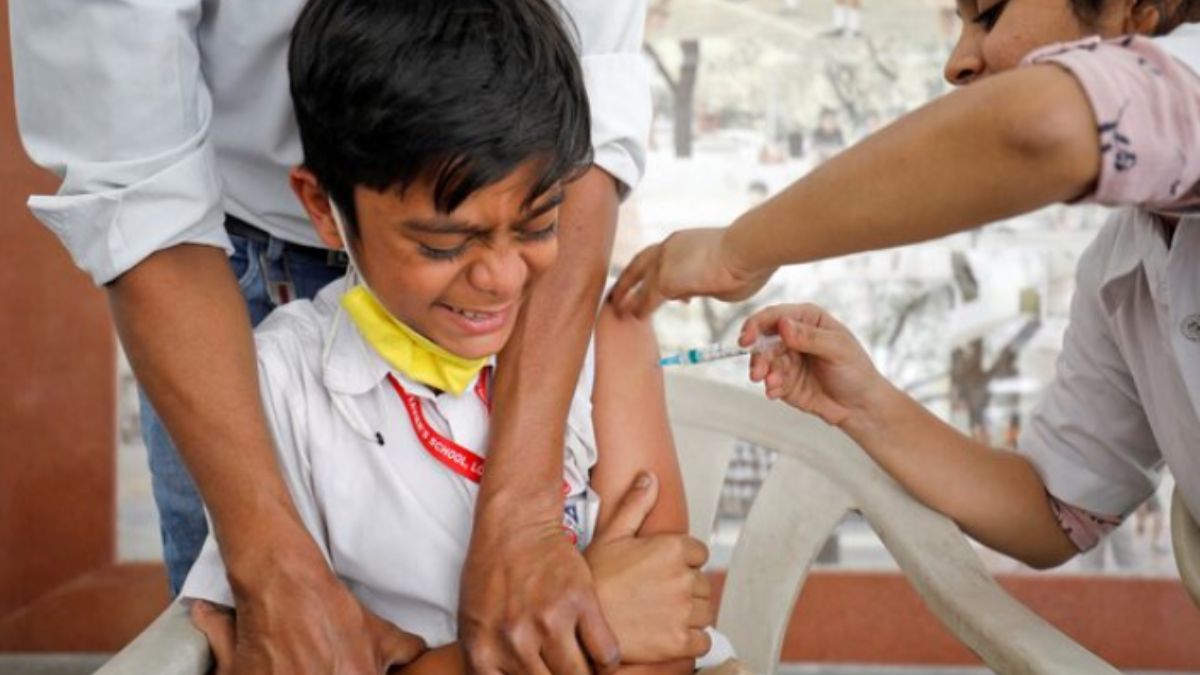Giving a significant boost to India’s Universal Immunisation Programme, Prime Minister Narendra Modi on Tuesday will unveil U-WIN, an online portal that will revolutionise vaccination tracking in the country.
Much like
CoWIN, which managed COVID-19 vaccinations, U-WIN will create a centralised digital record for vaccinations given to both pregnant women and children. The digital platform is expected to streamline health management for millions.
This big push to the health sector comes as
PM Modi is set to launch development projects worth nearly Rs 12,850 crore and extend Ayushman Bharat, the government’s flagship health insurance scheme to all senior citizens over the age of 70.
Following its successful pilot across multiple states, U-WIN is set for a nationwide roll-out. So, what does this portal offer? What are its key features, and how will it impact India’s immunisation efforts? Here’s what you need to know.
What is U-WIN?
U-WIN, short for Universal Immunisation Web-enabled Network, is a digital platform created to improve vaccine coverage across India, especially among disadvantaged communities that often miss out on immunisation coverage.
Under the current system, vaccination data is manually recorded by ASHA workers and then compiled into state and national registries, a lengthy and decentralised process that can take over a month, according to The Indian Express. Whereas, immunisation records from private healthcare providers are frequently excluded, leading to significant data gaps.
With U-WIN, the government plans to maintain digital, individual immunisation records from birth, making it easier to identify and support those who remain outside its vaccine net.
As per a Business Standard report, the platform was piloted across phases in 64 districts, where it demonstrated promising outcomes in improving record accuracy and coverage.
How does U-WIN work?
According to The Indian Express, children up to six years old and pregnant mothers can be registered on U-WIN using government IDs such as Aadhaar along with their mobile numbers.
Once registered, the platform tracks all 25 vaccines required for children, as well as the two for expectant mothers, creating a virtual immunisation record.
After each shot is administered and recorded on the platform, the date is updated on a digital card, which also shows the due date for the next vaccine. Additionally, to help parents keep up with schedules, the platform will send SMS reminders before the next dose is due.
The QR-based digital certificate, easily accessible through registered mobile numbers, colour-codes each vaccine dose of an individual and eliminates the need for a physical vaccination booklet.
Moreover, the U-WIN will give flexibility by allowing parents to self-register and get their children vaccinated at any available centre nationwide at their convenience.
Earlier, Health Minister JP Nadda also said the platform will work in 11 regional languages and will provide anytime access.
For health workers, U-WIN will automatically generate a list of children due for their next dose in their respective areas. Thus, simplifying follow-ups and increasing vaccination coverage.
In the long term, U-WIN is expected to support the inoculation of approximately 29 million pregnant women and 26 million infants every year, becoming the world’s largest immunisation registry.
What diseases will be covered?
U-WIN is an integral part of India’s Universal Immunisation Programme (UIP), which aims to provide free vaccinations against 12 preventable diseases to all pregnant women and children across the country.
These vaccines offer protection against serious illnesses, including Diphtheria, Pertussis (whooping cough), Tetanus, Polio, Measles, Rubella, severe childhood Tuberculosis, Rotavirus Diarrhoea, Hepatitis B, Meningitis and Pneumonia caused by Haemophilus Influenzae Type B, and Pneumococcal Pneumonia.
Additionally, in select endemic districts, UIP also includes vaccinations for Japanese Encephalitis.
How will U-WIN help with immunisation?
U-WIN is likely to be adopted easily across healthcare facilities, as it operates on the same principles and digital infrastructure as CoWIN.An immunisation expert who has previously collaborated with government programmes told The Indian Express, “We already know that the digital infrastructure needed to run such a big programme exists in the country. And most vaccinators have also worked with a similar platform, meaning they are likely to be comfortable with it.”
Additionally, the platform aims to minimise human errors. “If a health worker is about to administer the wrong dose, or administer the shot before time, the platform will not allow them to update it, thereby alerting them,” the expert noted.
Moreover, registering births could contribute to reducing the number of “zero dose” children—those who have not received any vaccinations.
In India, the coverage of the first dose of the diphtheria, pertussis, and tetanus (DPT) vaccine serves as a proxy for identifying zero dose children. Recent data from WHO and UNICEF reveal that while 93 per cent of children received their first vaccine dose, approximately 1.6 million zero dose children remained in India in 2023.
In the long term, a centralised database may enhance policy-making and implementation, paving the way for improved vaccination strategies.
With input from agencies

)





